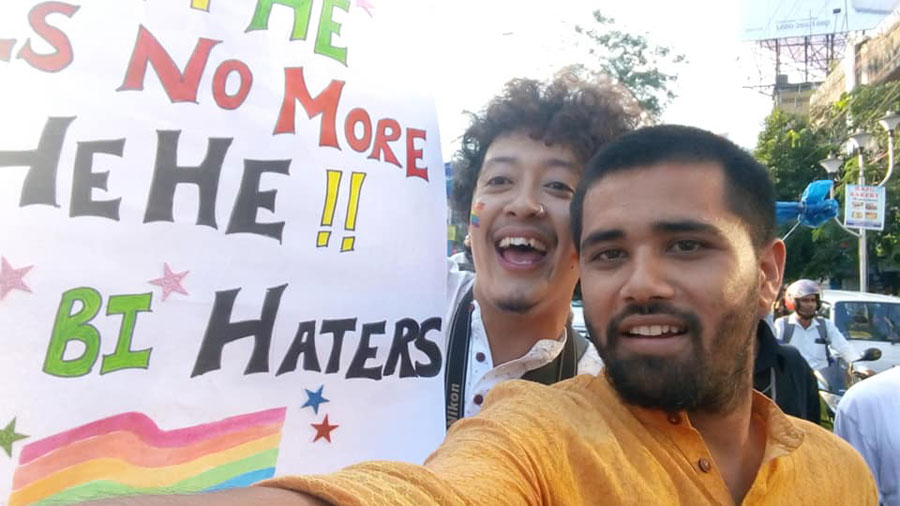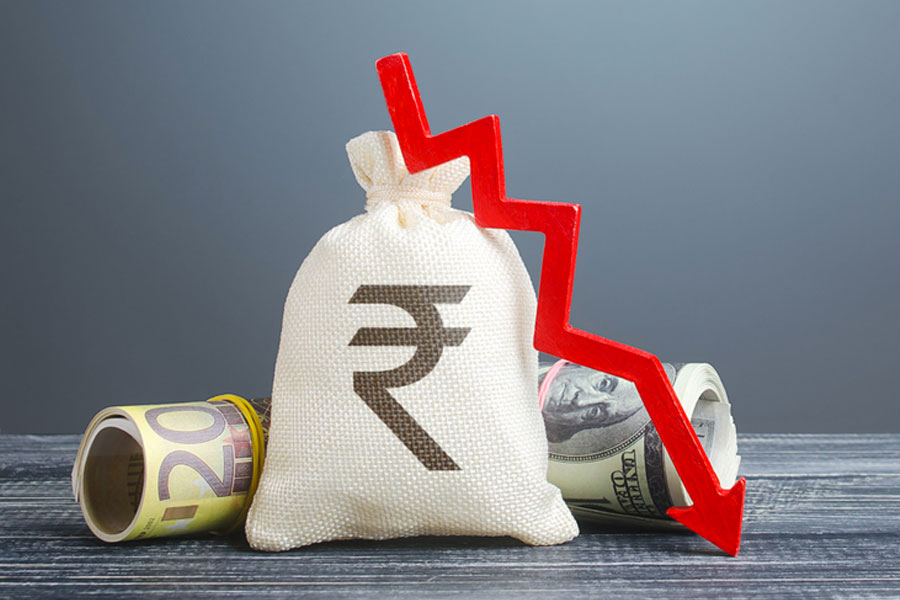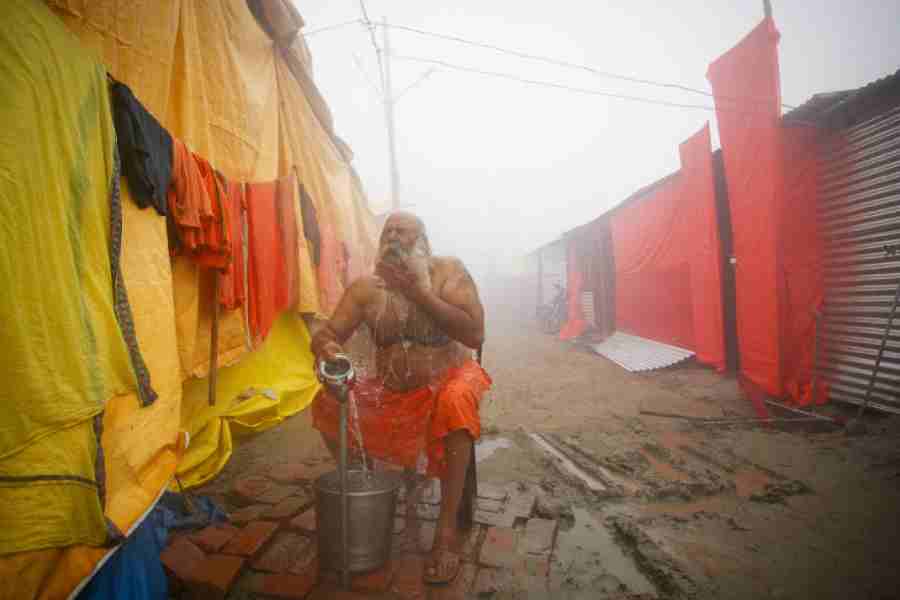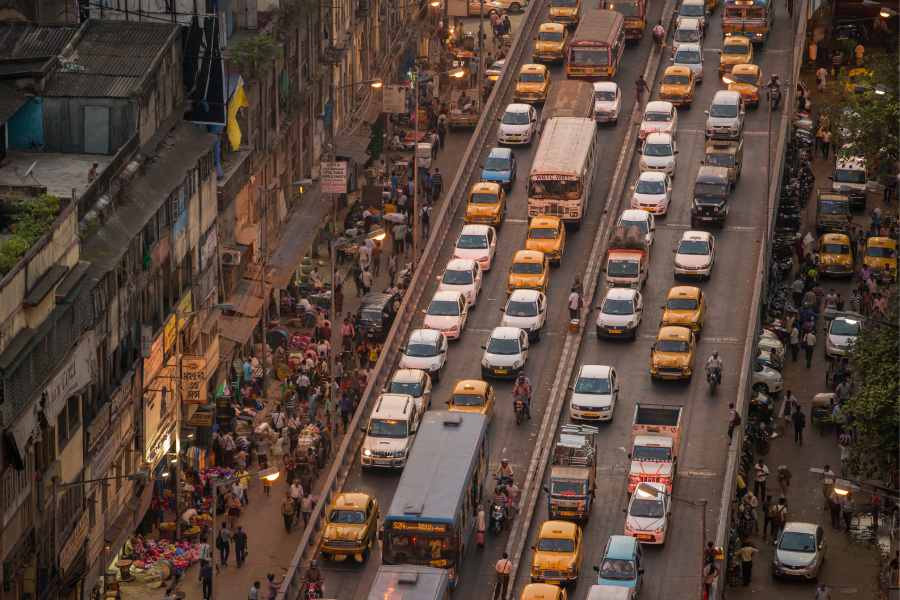Since February 7, Sumendra Tamang and his friends have been campaigning in the Darjeeling hills, the terai and dooars areas, talking to workers in the and cinchona gardens, landless labourers and farm-hands, explaining to them why they must not vote for the BJP. They are singing songs and enacting plays at street corners in front of harried tea workers taking a break during lunch hour and laterin the evenings, outside bustees in the plains and hills.
“We are trying to find out who the better enemy is,” says Tamang, a 30-year-old economics graduate from Jadavpur University who now describes himself as an "anti-Fascist activist".
Tamang’s organisation, "Laali Guras (Red Rhododendrons)", is a part of the Shramjeevi Adhikaar Abhiyaan (Workers Rights Movement) which has been at the forefront of the campaign against the BJP. “Fascism itself means little to the people. So, we tell them about the laws and the impact it will have on their lives. Fascism comes in many forms,” says the 30-year-old.
Out of the 14 seats in Cooch Behar, Alipurduar and Jalpaiguri that go to the polls in the fourth phase on Saturday, along with 30 others in south Bengal, the BJP had led in 12 of the Assembly segments in the 2019 Lok Sabha polls. This territory in North Bengal had marked itself saffron in 2019 cashing in on resentment brewing among the myriad communities that have made their homes there since 1835 when the Bannackburn and the Lingia tea estates were formed in Darjeeling.
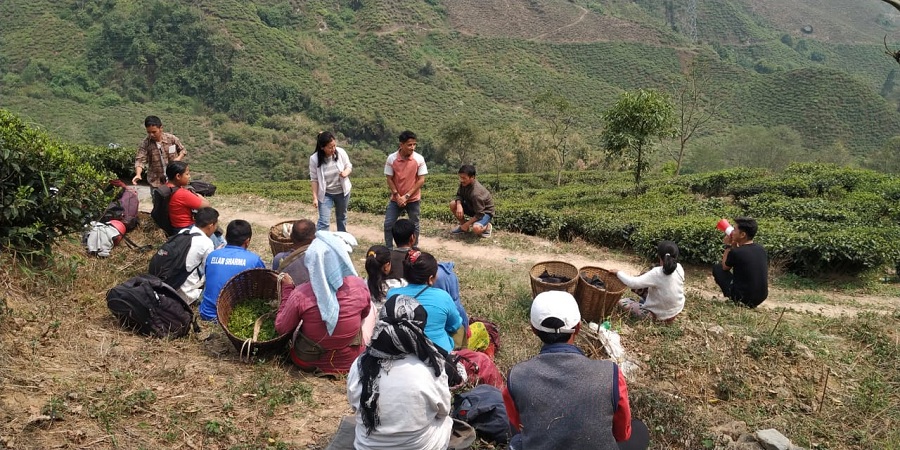
Laali Guras (Red Rhododendrons) campaigning at Margaret Hope Tea Garden, near Sonada, Kurseong. Telegraph picture
A survey carried out by the Bengal government’s labour department in 2013 stated 1.86 lakh families were residing in the tea estates of Darjeeling, terai and dooars. “We in the Hills are aware of what is going on in the rest of the country. The new farm laws, the labour laws, NRC all of these impact us directly… Two days back, the Kurseong BJP nominee said NRC will not impact Gorkhas. But, in Assam the Gorkhas have been delisted,” says Tamang.
Like in the rest of Bengal, the CPM’s 34-year-old uninterrupted reign is still fresh in the minds of the people in the Hills, Dooars and Terai. They have also seen the decade-long Mamata Banerjee government, which came riding on an anti-CPM wave with a bagful of promises. They are also seeing the Narendra Modi government at work in the Centre, which now promises "Asol poriborton” and “Sonar Bangla” _ something that means little to a daily wage earner who goes home to his wife and children with a meagre Rs 176 in hand.
One of the songs Tamang's group sing goes like this. “Gaon gaon bata utha, bustee bustee bata utha, yu des ko muhaar phernalai utha” (Rise from the villages, rise from the houses, rise to change the face of this country).”
Tamang speaks about three of the most important legislations introduced by the Narendra Modi government and how it could impact their lives.
“In the Trinamul-BJP binary, opposing one does not mean supporting the other. We are talking about the policies. The farm laws, the four labour codes, the NRC,” he says.
Two days ago, Kurseong BJP nominee B.P. Bajgai had declared that if even one report could be produced to prove that one lakh Gurkhas had been excluded from the NRC in Assam, he would not contest the polls. He was trying to counter the fear of the "doubtful voter" tag in Assam.
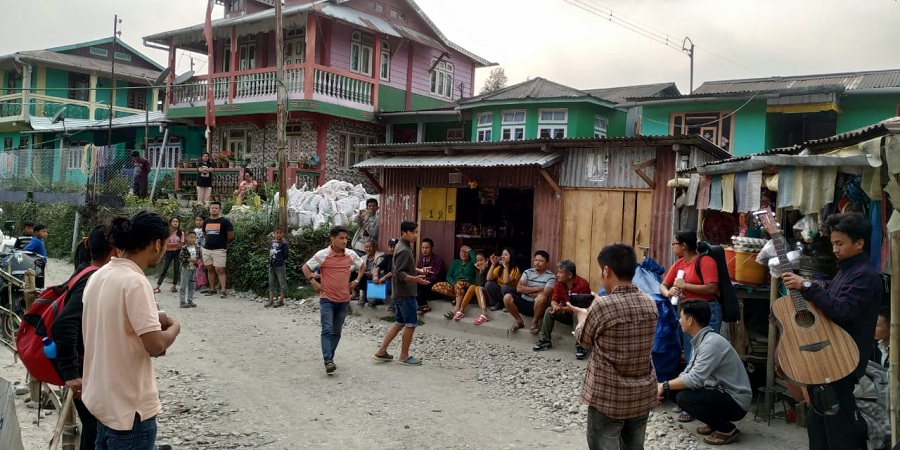
Laali Guras (Red Rhododendrons) campaigning among residents of Margaret Hope Tea Garden, near Sonada, Kurseong. Telegraph picture
In Assam, around 23,000 Gorkhas have been marked "D" or doubtful voters. In case the head of a family is marked a "doubtful voter", all family members are excluded from the National Register of Citizens (NRC). This fear has percolated among the Gorkhas, Muslims and also a section of the Hindus about their status as citizens if the BJP comes to power in Bengal.
“Most of the people don’t have birth certificates. The parja-patta (land documents) they don’t have. Seventy per cent of the people here will turn into refugees overnight if the NRC is implemented,” says Tamang.
The BJP in its campaign in Bengal has stressed on implementation of the NRC, while chief minister Mamata Banerjee has remained steadfast in her opposition. In October 2020, a petition was sent to the chief minister demanding the minimum wage, pending since 2014, be fixed.
Like the competitive communalism the BJP and Trinamul have been engaged in, there is also a competition for promises. In February, the Modi government announced a Rs 1000crore package for the tea industry in North Bengal and Assam in the Union budget. The following day, Mamata announced concrete houses for all tea garden workers in three years. There is no clarity whether this scheme would benefit the 50,000-odd workers in the 14 closed tea gardens and their families.
Last July amidst the nationwide loockdown, almost a lakh small tea gardens in North Dinajpur, Jalpaiguri and Alipurduar provided a hike of Rs 9 to workers, raising their daily wage to Rs 159. Voters in these parts will keep the nine rupees in mind when they go to the polling booths on Saturday.
In Assam, around 23,000 Gorkhas have been marked as D (Doubtful) voters. In case the head of a family is marked "doubtful voter" the names of his family members are excluded from the National Register of Citizens (NRC). The fear has percolated amongst the Gorkhas, Muslims and also a section of the Hindus about their status as citizens if the BJP comes to power in Bengal.

